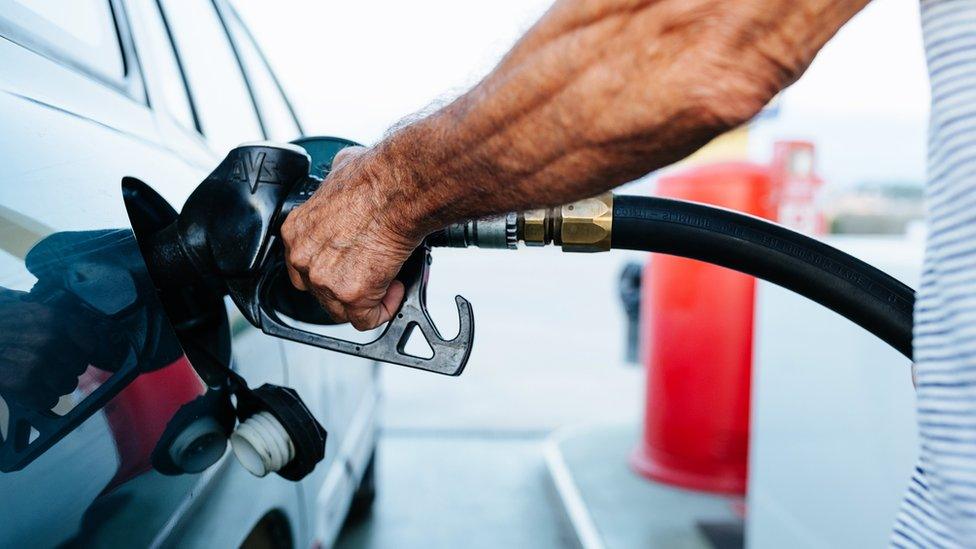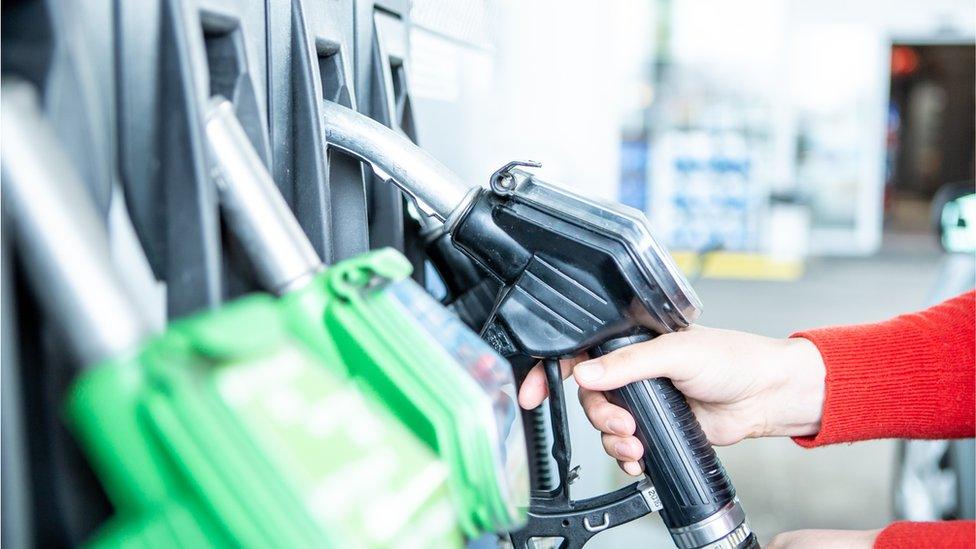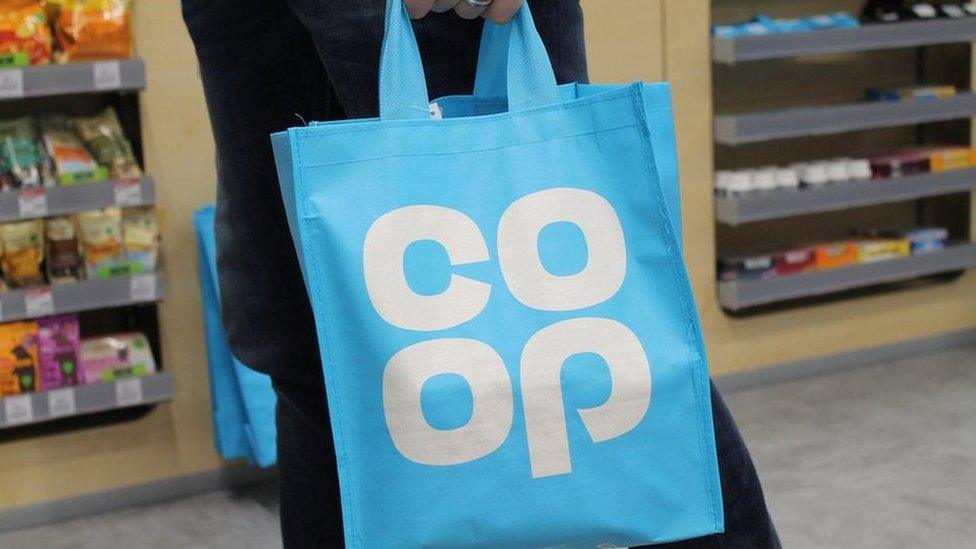Co-op sells petrol stations to Asda in £600m deal
- Published

The Co-op has agreed to sell its 129-strong petrol forecourt business to Asda in a deal worth £600m.
The Co-op said the sale of the sites, which represent 5% of its retail estate, would enable it to expand its network of grocery stores and also help it balance the books.
Asda said the purchase was part of plans to move into smaller, convenience grocery stores.
About 2,300 Co-op petrol station staff will be moved to Asda's employment.
As part of the deal, Asda will pay £438m in cash and take on responsibility for Co-op's lease payments which total about £162m.
The precise figure will be confirmed when the sale is completed later this year.
"This transaction is in line with our strategy to move away from operating petrol forecourts and supports our vision of 'Co-operating for a fairer world', while building our core leading convenience business," said Shirine Khoury-Haq, chief executive at the Co-op.
Mohsin Issa, co-owner of Asda, said the supermarket saw convenience stores as a "significant growth opportunity for the business".
"This acquisition accelerates our strategy in this area and forms part of our long-term ambition to become the UK's second largest supermarket," he said.
The deal for the Co-op's 129 forecourts include the shops on the sites.
Asda currently has 320 petrol stations across the UK, but the grocery chain is behind in the fast-growing and profitable convenience store business, where Sainsbury's Local and Tesco Express have grown rapidly.
Susannah Streeter, senior investment and markets analyst at Hargreaves Lansdown, said although Asda was expanding its petrol forecourt numbers, the supermarket would be "more focused on reaping rewards from added grocery sales, rather than fuel revenues".
"Forecourt shops are not now seen simply as petrol stations but rather as convenience stores which sell fuel," she added.
"Asda sees significant potential in adding a raft of new shops to its retail portfolio, especially given that industry data shows that there has been a 12% increase in average weekly spend at forecourts compared to a year ago."
Co-op Group - which owns supermarket chains and funeral care operations - has offloaded a number of its divisions over the past decade, including its chain of pharmacies and travel shops.
Co-op announced last month it was cutting about 400 head office jobs in the face of tough trading conditions, made worse by inflation running at a 40-year high. In April the firm revealed its annual profits halved.
Ms Khoury-Haq, who has recently been appointed Co-op's chief executive, told the PA news agency there were no plans to sell any more of the group's assets.
She said the sale of petrol stations to Asda would help the company reduce its net debt and "improve our financial position, giving us more of a buffer to ride out the current economic waves".
"If we have learned anything over the past couple of years, it is that we cannot predict much in terms of what is coming next," she said.
"We are incredibly optimistic about the future of the business, but we do need to look prudently at the external environment."

Asda's new owners - Mohsin (left) and Zuber Issa in Blackburn last year
Asda was bought by the Issa brothers in February 2021; the two entrepreneurs from Blackburn made their billion-pound fortunes running petrol stations.
When Britain's third-largest supermarket chain was taken over by the Issa Brothers and TDR Capital last year, it agreed to sell 27 of its forecourts in order to secure the acquisition after the Competitions and Market Authority (CMA) raised concerns.
Asda confirmed it was ready to co-operate with the regulator should it choose to investigate the deal.
Related topics
- Published10 August 2022

- Published21 July 2022
